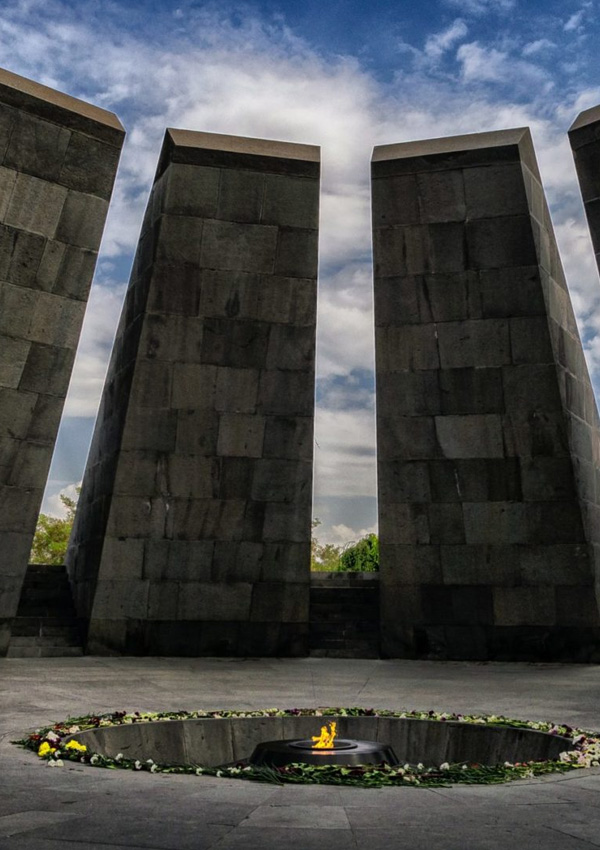

Winston Churchill declared during World War II in late 1941 that the Nazis were committing a “nameless crime.” The jurist and humanist Raphael Lemkin devoted himself to finding an appropriate term for these acts of human barbarism. Thanks to his studies in philosophy, philology and law, Lemkin succeeded in coining the neologism genocide in 1943. […]
Winston Churchill declared during World War II in late 1941 that the Nazis were committing a “nameless crime.” The jurist and humanist Raphael Lemkin devoted himself to finding an appropriate term for these acts of human barbarism. Thanks to his studies in philosophy, philology and law, Lemkin succeeded in coining the neologism genocide in 1943. Through his personal commitment, he ensured that the United Nations Genocide Convention came into being in 1948.
IT DISCUSSES
PROF. DR. DIETMAR KÖSTER
EU PARLIAMENT, HUMAN RIGHTS COMMITTEE
PD DR. KRISTIN PLATT
INSTITUTE FOR DIASPORA AND GENOCIDE RESEARCH, RUHR UNIVERSITY BOCHUM
PROF. DR. FABIAN KLOSE
RESEARCH COUNCIL OF THE GERMAN SOCIETY FOR THE UNITED NATIONS, UNIVERSITY OF COLOGNE
MATEUSZ FALKOWSKI
DEPUTY DIRECTOR OF THE PILECKI INSTITUTE, BERLIN
DISCUSSION LEADER
KATHARINA SCHULER (MA)
The event will be broadcast live via Zoom. Limited in-person attendance will be available at the venue.
Winston Churchill declared during World War II in late 1941 that the Nazis were committing a “nameless crime.” The jurist and humanist Raphael Lemkin devoted himself to finding an appropriate term for these acts of human barbarism. Thanks to his studies in philosophy, philology and law, Lemkin succeeded in coining the neologism genocide in 1943. Through his personal commitment, he ensured that the United Nations Genocide Convention came into being in 1948.
Without a Mission. The autobiography of Raphael Lemkin tells about the life of this extraordinary personality in the history of the 20th century. Of a man of moral imagination and civic conviction who proved to us that the search for justice and the protection of human rights are not mere goals, but can become reality.
Raphael Lemkin’s unusual life story reflects the history of Europe under the tremors of the 20th century and shows the striving for a spirit of universal humanity. True to Tolstoy’s maxim that “to believe in an idea requires living it,” Lemkin made the realization of his idea his life’s purpose.
In this event, you will learn about this extraordinary life and its relevance to the discussion of genocide today.
A cooperative event of: German United Nations Association (Bonn), Pilecki Institute (Berlin), Arbeiterwohlfahrt (Bochum) and the Fritz Bauer Forum (Bochum).
Header photo: ©Amir Kh. The Armenian Genocide Memorial is Armenia’s official memorial to the victims; it was built in 1967 on Tsitsernakaberd hill in Yerevan.
Rotunde Bochum
Konrad-Adenauer-Platz 3
44787 Bochum